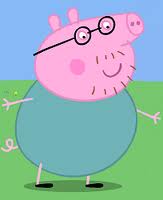Here is a piece I wrote about the Asda and Morrisons Christmas adverts for the Fatherhood Institute website.
Have yourself a sexist little Christmas?
Why are two of our biggest supermarket chains turning gender equality back 40 years in their Christmas adverts this year? Asda and Morrisons both portray mothers running around like demented scullery maids for weeks on end as they get ready for the festivities. Stocking cupboards, buying and wrapping presents, writing Christmas cards, decorating trees, kitting the kids out in nativity costumes, wrestling with turkeys…you name it, the mums are in charge, and their task-lists are never-ending.These selfless, saintly backbones of the family ask no reward for their festive domestic servitude, save for a fleeting moment of satisfaction as they feast on the sight of their over-fed, useless husbands, children and assorted family members snoring contentedly, semi-comatose in a post-prandial haze on Christmas afternoon, twixt Queen’s Speech and an evening of charades. You see – it’ll be worth all the effort in the end, girls!Where are the fathers in these outmoded, cliché-ridden depictions of 21st century domestic bliss? They’re in there, but only as bit players – carving the turkey, plugging in the fairy lights, staring incompetently as their better halves choose the right tree. At their most visible, they exist simply to display a childlike ignorance of the mums’ true sacrifice. Hence at the end of the Asda film we see mum finally get to sit down with a glass of wine after 2 months’ graft, as dad delivers the final, inevitable punchline: ‘What’s for tea, love?’.Without wishing to be too ‘bah humbug’ about this, let’s pause to think for a moment about the realities of UK family life. Research shows that between the late 1960s and 2004 the time British men spent on domestic work (including cooking and shopping) rose from 90 minutes to 148 minutes per day, while women’s dropped from 369 minutes to 280 minutes. It’s likely that since then, the figures have continued to converge. Survey after survey shows that both men and women want a better work-life balance, and more sharing of their earning and caring responsibilities.No, men are not yet matching the time women devote to domestic work, but we know they’re on their way – just as we know that women are increasingly going out to work, but are still more likely to work in less-than-full-time jobs – and that when they do work full-time, they tend to work in more family-friendly roles, with shorter working hours and commutes.So why would the supermarkets choose, in the context of this convergence, to portray the average British family in such a polarised way, filling Britain’s homes for the next month with images of women revelling in unpaid domestic drudgery, pathetically grateful for the chance to labour unrewarded in the face of their loved ones’ ignorance and sloth? Presumably because this is what the advertising executives’ focus groups tell them we want to watch.In fact, both men and women seem to have been annoyed by the Asda advert in particular. The Advertising Standards Authority has launched a formal investigation after more than 190 people complained, and more than 100 people have signed an online petition against it. Small numbers, perhaps, but given people’s general apathy about making complaints – especially about what might easily be dismissed as a harmless bit of fun – indicative that the public is growing to expect more of its big household brands, perhaps.In its ‘Live well for less’ campaign Sainsbury’s has certainly shown that it’s possible to warm the cockles of our hearts with depictions of everyday, involved fatherhood. And with its snow-people John Lewis has again found an engaging way to portray the spirit of Christmas without resorting to cliché (although mightn’t it have been more interesting if it had been her ‘going the extra mile’ to find a gift for him?). Even Argos’ blue shopping aliens present a pretty even-handed reflection of mums and dads getting ready for the festivities.By contrast, Asda and Morrisons’ mum-centric dystopias feel like a depressing and much-needed reminder that for all the progress we’ve made towards gender equality since the 1960s, our cultural inertia around motherhood and fatherhood remains scarily deep-seated. In most British families, mums, dads and other family members will be working together to prepare for and enjoy the festivities. Let’s not allow the likes of Saatchi and Saatchi fool us into thinking otherwise!
I've just had another look at this piece from Marketing Week, in which Asda CEO Andy Clarke stressed that his company hadn't aimed to cause any offence.
Check out the comments - not from Joe Public, mark you, but the sophisticated and engaged marketing professionals on whom British industry relies for cutting edge analysis and customer insight.
What else is there to say? We're all going to hell in a handcart. Merry bloody Christmas!!

